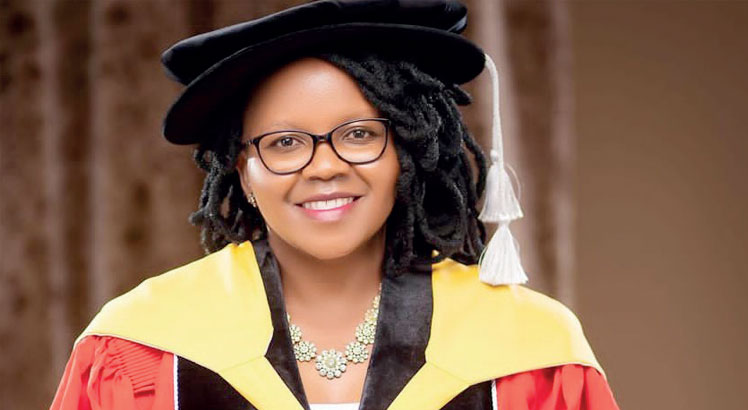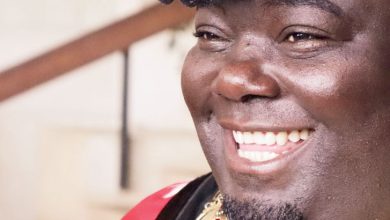Dr. Mwawi Ng’oma: Passionate Mental Health Nurse
While there is relatively better access to medical attention for most illnesses in the country, mental health seems to be lagging behind.
Traditional beliefs that lead to stigmatisation of mental health patients have sidelined this ailment from the national health agenda.
It is this realisation that inspired Dr. Mwawi Ng’oma, a mental health nurse, midwife and researcher, to dedicate her career to understanding and improving the well-being of patients.
She spends most of her time trying to understand the impact of mental health on society.
Mwawi says: “In my career over the years, I met mothers struggling with severe maternal mental health challenges and through reading, I learnt that these problems were common.
“I asked myself if few women with severe challenges are accessing care, what is happening to those with mild to moderate challenges and what help is out there for them?”
It was the answer to these questions what drove her to study “understand the magnitude of the problem in our setting, challenges mothers are facing, preparedness or capacity of health care system to address these challenges and intervention to address the identified needs.
“A mother’s poor mental health does not only affect her. It affects the child’s growth and development; the child’s emotional well-being and the entire family,” she says.
Mwawi observes that perinatal depression affect a woman’s ability to function, including taking care of herself and the baby.
She says: “Women lack information about common maternal mental health problems, how to prevent them and where to seek care.
“The other challenge is lack of appropriate services to address emotional or mental health needs of pregnant women and mothers in the first year following child birth, including lack of medication and health care providers.”
Mwawi says lack of support during pregnancy and child birth worsens the mother’s experience.
Her professional journey has been marked by accolades such as the African Mental Health Research Initiative (Amari) fellowship in October 2017.
The four-year fellowship supports scholars with interest in mental health, neurological and substance misuse research.
“Amari was implemented in four Universities; University of Malawi, University of Zimbabwe, Addis Ababa University and University of Cape Town,” says Mwawi.
As part of this fellowship, she adapted and tested an intervention to help women with depression in pregnancy and one year after child birth.
This work was done in collaboration with mothers themselves and other key stakeholders
“I later published several research articles to improve services in Malawi and other low resource settings,” she says.
She says her role model and mentor is Dr. Diana Jere, a mental health nurse.
Says Mwawi: “Although I had my own reservations going into mental health clinical allocation during my second year of study, Jere changed my perception.
“She made me realise at an early stage the significance of an individual’s mental health on total health and the role mental health nurses play to facilitate recovery.”
In the 27 years of her career, Mwawi has transitioned from a nurse to a lecturer and later to a programme manager at St John of God College of Health Sciences.
She says the milestones came at a right time after working for two years as a general nurse and four years as a mental health nurse.
Mwawi works as programme manager at St. John of God Hospitaller Services and lecturer at St. John of God University.
Born and raised in Mzuzu, she attained her early education at St. Peters, Sonda and Mzuzu CCAP where her academic journey started, transcending into a remarkable contribution to the field of science locally and globally.
“I did the last the last two years of education at Chigumukire Primary School in Chileka, Blantyre from where I was selected to Mzimba Secondary School in 1989,” she says.
From 1993 to 1997, she studied general nursing and midwifery at Kamuzu College of Nursing.
“I obtained a Postgraduate Diploma in Community Mental Health Nursing from University of KwaZulu Natal, South Africa and consequently became a State registered mental health nurse in 2001. In 2005 I obtained a master’s degree in nursing specialising in mental health from same university in 2005,” says Mwawi.
As a woman who believes in attaining the best in life, the mental health expert nurse enrolled with the University of Malawi, College of Medicine for doctoral studies in 2018. She attained her PhD in April 2024
Explains Mwawi: “After working in academics for eight years, I found myself looking for something more challenging. So when a programme manager’s position became vacant, I applied and was successful.
“I served in Mzuzu responsible for all mental health and disability inclusion programmes and project up to 2016 when I moved to Lilongwe. I was tasked to lead a team that set up the Area 43 St John of God Hospitaller Services and still overseeing development and implementation of programmes and projects.”
Looking at her achievements so far, she says attaining a PhD and publishing her research findings in reputable peer reviewed journals are some of the highlights of her career.
“I have trained and mentored a lot of mental health professionals that are serving the nation in different capacities. Following my research work, I am now championing a one of its kind, four-year maternal mental health project,” she says.
Through this project, mothers in Lilongwe and Mzimba North will access specialised care in primary health care clinics for free.
“It is my hope that the model of integration we are piloting in liaison with the Ministry of Heath will be replicated in all primary health care clinics in Malawi,” she says.
Mwawi adds there is need to improve mental health budget to cater for maternal mental health needs, integrate mental health into maternal and child health services so that all mothers have a chance of having their mental health or emotional well-being checked as they go for antenatal or postnatal checks as well as under five clinics.
The mental health expert also says there is need for equipping healthcare workers with necessary knowledge and skills to address maternal metal health challenge, develop treatment guidelines and referral networks to support health care providers who in turn can provide necessary support to mothers.
She also highlights the need for appropriate facilities that will give chances to mothers to have companion in labour and have dignified maternity care.
Mwawi says she is motivated when she sees her clients offered compassionate quality care and the smiles in family members faces when they visit and notice positive health outcomes in their loved ones.
Juggling between academic, professional and personal life has not been eas,y but planning works wonders for her.
“As you grow in age and climb the career ladder so are responsibilities. Because of this I find myself struggling to balance at times. This was very common when I was doing my doctoral studies while working
“Nonetheless I try to take breaks from academics and my work to recharge and spend time with my family,” shares Mwawi.
She advises young women aspiring to build a career in nursing or health research to remain determined.
She said the paths one takes in these professions are often filled with challenges, but the key to overcoming them lies in perseverance.
“Don’t be afraid to ask for help or support and always remain true to yourself,” she concludes.





